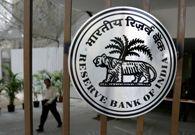 The Reserve Bank is likely to go ahead with its policy tightening but concerns on the European debt crisis deepening may weigh on the apex bank's policy decisions, Morgan Stanley said.
The Reserve Bank is likely to go ahead with its policy tightening but concerns on the European debt crisis deepening may weigh on the apex bank's policy decisions, Morgan Stanley said.
According to the firm, the RBI may hike its repo and reverse repo rates (short-term lending and borrowing rates) by 0.5 per cent hike each, by the year-end to unwind from its easy money stance, Morgan Stanley said.
"We believe the RBI will continue to tighten policy rates gradually by 25 basis points over the next two monetary policy meetings before year-end 2010," Morgan Stanley Economist, Chetan Ahya said.
However, the continuing uncertainty and concerns on the sovereign debt crisis may weigh heavily on the apex bank's policy decisions, said. "...if there is a significant deterioration in global risk appetite due to EU sovereign debt concerns, there is a potential downside risk to our domestic growth and policy rate hike expectations," Ahya said.
RBI, which began exiting its monetary policy stimulus since last October by restoring the Statutory Liquidity Ratio (SLR) to 25 per cent, hiked its repo, reverse repo rates by 0.5 per cent each so far this year and cash reserve ratio by 0.75 per cent.
Commenting on the better-than-expected 3G auction revenue, Ahya said the additional revenue is expected to help the Government to cut down its fiscal deficit, targeted 5.5 per cent in FY 11, besides reducing its public borrowing.
Morgan Stanley, Head of India research, Ridham Desai said the depth of the ongoing debt crisis could influence the cross-border capital flows and the flows could be impacted if the crisis deepens in Europe.
He said the benchmark Sensex could end this year at just over 19,000, although there is a probability that it could settle way below at 14,000-level if the debt crisis worsens in the Europe.
According to Morgan Stanley estimates, the Indian economy is likely to grow 8.5 per cent in the current financial year despite the gradual exit from the monetary and fiscal stimuli by the policy makers.
The country's economy grew by a better than estimated 7.4 per cent in 2009-10 on the back of double digit expansion in manufacturing sector. In the fourth quarter, the economy grew by a robust 8.6 per cent.





